The man who transformed bookshop chain Foyles
- Published
Sam Husain has fought off the threat of e-books and online retailers to make Foyles profitable again
It used to be rather difficult to actually buy a book at one of the UK's oldest and best-known bookshops - Foyles.
Run by the indomitable Christina Foyle for 54 years until her death in 1999, she had an eccentric way of doing things.
Firstly, books were not ordered alphabetically at Foyles' vast, but ramshackle store on London's Charing Cross Road. Instead they were grouped together by publisher.
If you eventually found what you were looking for on its 30 miles of shelving, then your problems were far from over. Because instead of simply going to pay at a till, you were required to queue three times.
To begin with, you had to collect a paper invoice for the book in question, which you were required to take to a different part of the shop to pay. Then you had to go somewhere else in the building to finally be given the book.
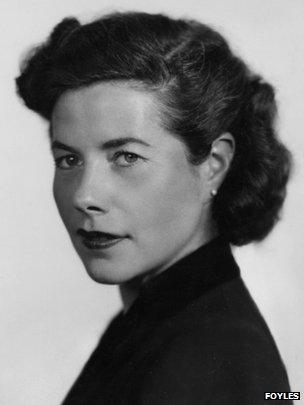
Christina Foyle was a force to be reckoned with
And the staff were often not particularly happy, no doubt due to Ms Foyle's rule of sacking everyone after they had been there for one year.
Perhaps unsurprisingly, the family-owned business, which started in 1903, struggled to make a profit under Ms Foyle.
When she died, control passed to her nephew Christopher Foyle, a grandson of one of the two founders.
He immediately started to modernise the business, but, with the company continuing to make a loss, in 2007 he decided to bring in the firm's first boss from outside the family.
The person he appointed as the new chief executive was an accountant-turned-business leader called Sam Husain.
Despite not having previously worked in the retail sector, let alone sold books, Mr Husain was tasked with transforming Foyles' fortunes.
'Brutal decision'
With a diverse background working and running London-based businesses in the energy and broadcast sectors, where he had a track record of successfully turning around companies, Mr Husain, whose niece is BBC presenter Mishal Husain, says he was brought in as "a fresh pair of eyes".
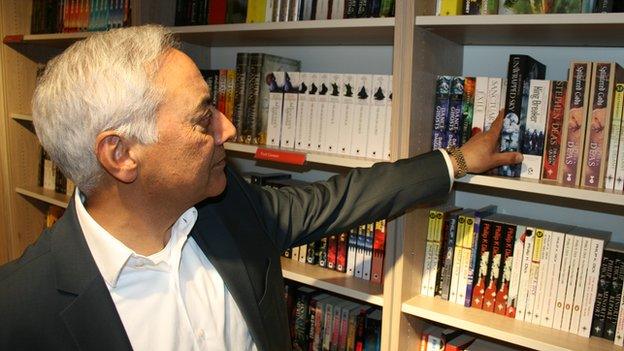
Sam Husain was the first boss of Foyles not to come from the Foyle family
Now 67, Mr Husain immediately realised that with Foyles he was going to have "his hands full".
Although Mr Foyle had ended the need to queue three times, and started to order the books alphabetically, many other aspects of the business needed to be fixed and modernised.
One problem was the thousands of old books clogging up the shelves. Nobody ever bought them so Mr Husain says he made the "brutal" decision to simply bin them.
"We cleared out £1m of stock," he says. "And when you realise that the average price of a book is about £7, that is a lot of books.
"The older stock was just cleared out, and more or less dumped. That was a write-off... but we had to face that to transform the business."
With space now available on the shelves, Foyles could instead bring in newer, more popular books which would actually sell.
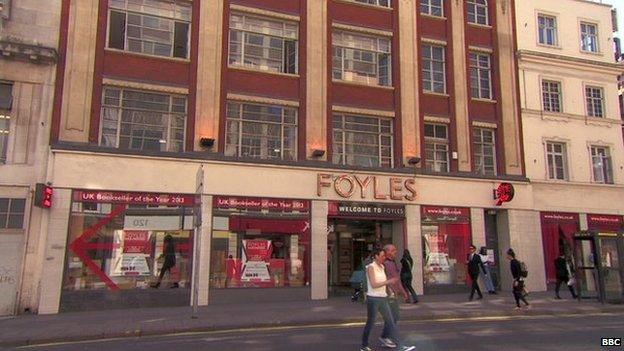
Foyles' former main store closed last year as the firm moved a few doors down the same street
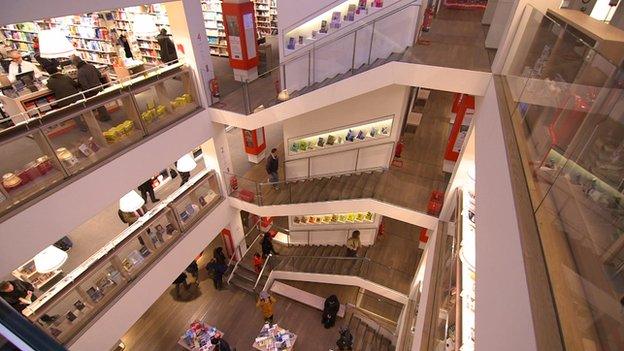
The new flagship building has been specifically designed to be bright and airy
And to motivate section managers, they were given much more autonomy.
They were told to view their section of the store as their own bookshop, and use their expert knowledge of, say cookery books or science fiction novels, to pick which titles they wanted to stock. This helped to increase staff morale greatly.
Also keeping a close eye on the finances, such as securing better terms with some publishers, Mr Husain says that as the months progressed he was slowly able to turn things around.
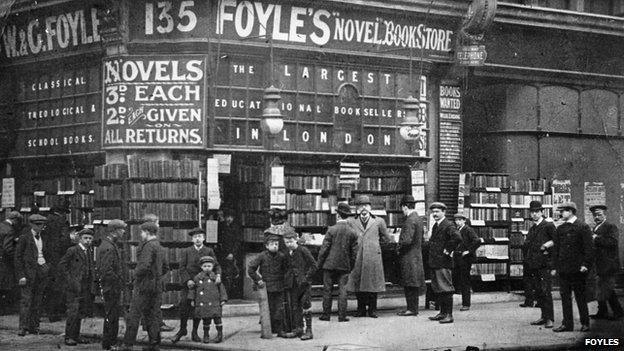
Foyles was founded in London in 1903 by brothers William and Gilbert Foyle
"It took the best part of a year to actually transform the business, to bring in business practices one would normally have in a well-run company.
"But I had a lot of help. The management team were excellent, the ingredients were already there."
So despite the growth of online booksellers such as Amazon, the rise of the e-book, and the collapse of bricks-and-mortar store rivals such as Borders, Mr Husain was able to return Foyles to profitability in little over a year, and it has remained there ever since.


The Boss is a series profiling entrepreneurs from around the world.

Mr Husain has also expanded the business, as he said he didn't want it to be too reliant upon its main store.
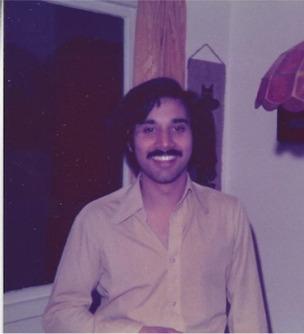
Sam Husain first came to the UK in 1964
When he took over Foyles it had a second smaller outlet in London, and now it has five branches - four in the capital, and one in Bristol. A sixth outlet is due to open in Birmingham later this year.
And last year Foyles moved its flagship store a few yards down London's Charing Cross Road, swapping its old, dark scruffy building for a shiny new bright and airy temple to books.
Foyles also has its own website, but this only accounts for 3% of its sales.
'Brighter future'
Mr Husain firmly believes bricks-and-mortar bookshops can still be successful, but only if they remember that they have to offer customers excellent service and a pleasurable overall experience, to compensate for the fact that they cannot compete on price.
"Books are without question offered cheaper online," he says. "But visiting a bookshop offers the chance to browse, to discover books... to have human contact.
"At our main store and the Bristol branch we have auditoriums where we hold events [such as book readings], and we have cafes. They are bookshops you can enjoy to spend all day in."
Looking to the future of physical bookshops, Mr Husain says that despite the continuing challenges, the future will ultimately be a bright one.
"It is going to be a challenging world for a while, but my personal view is that the worst is behind us," he says.
Yet leading that challenge at Foyles will soon be for someone else, as Mr Husain is retiring as chief executive at the end of April.
Set to have the first substantial spare time on his hands since he moved to the UK from Pakistan in 1964 to train as an accountant, he says he is looking forward to catching up on some reading.